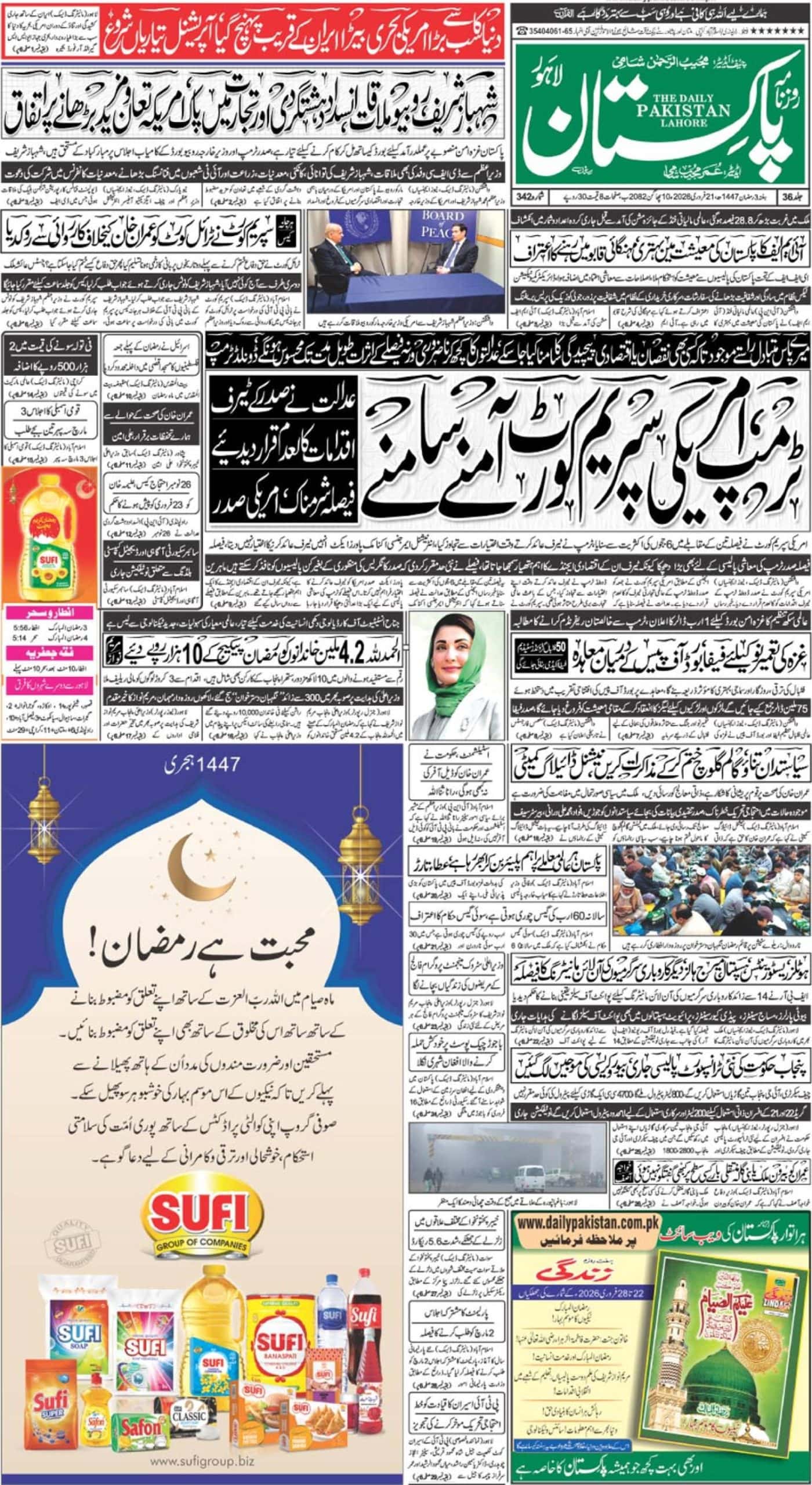LONDON – A UK High Court judge has ruled that the words used by three PTI representatives against Murtaza Ali Shah, a London-based correspondent for Pakistan’s Geo TV and The News, were defamatory at common law and that the reporter was defamed through a campaign.
At a preliminary trial on the meaning of the defamatory words, High Court Judge, the Honourable Mrs Justice Steyn DBE, sitting at the King’s Bench Division of the Royal Courts of Justice said that, “an allegation that a journalist has knowingly publish false or baseless reports strikes at the heart of their professionalism, and undoubtedly meets both the consensus requirement and the threshold of seriousness.
“The statement of opinion that he has been misusing his professional position for his own purposes also meets those requirements. These are serious allegations to make against a professional journalist.“
The case was brought by Mr. Shah through his lawyer barrister, Mr Jacob Dean, against PTI leaders Mohammad Imran, Shanaz Hussain and Riaz Hussain, who launched a defamatory social media campaign against the journalist in March 2020 when Mr Shah did reporting on Justice Qazi Faez Isa’s case from London after Assets Recovery Unit paid to a spy agency to investigate son and daughter of Justice Isa.
Shanaz Hussain is known as Shanaz Saddique in PTI party but her real name is Shanaz Hussain. In January 2012, Preston Crown Court found Shanaz Hussain guilty of £360,000 mortgage fraud after a trial which found that Shanaz Hussain had forged several documents and also forged signatures of a law firm. Shanaz Hussain was found guilty of seven fraud offences, was given a 12-month prison sentence, suspended for two years and she was also ordered to complete 300 hours community service.
After conducting a trial of preliminary issues of meaning at the UK High Court, Mrs. Justice Steyn, DBE, accepted the meanings of six publications advanced by Murtaza Ali Shah’s barrister, Jacob Dean, and ruled that in all six publications by the defendants, Shah was defamed at common law.
Murtaza Ali Shah, who has previously won two defamation cases at the UK High Court, brought his case against the three PTI officials after they came together and began a campaign against him on March 30, 2020 by launching a petition against him on Change.org and then publishing at least five YouTube, Facebook and Twitter publications. The defamatory petition carrying false allegations and lies was sent to PTI ministers and leaders in the UK and Pakistan, seeking their support, on WhatsApp and through several WhatsApp groups with thousands of members.
Mrs Justice Steyn, DBE, ruled that whilst the defendants had made written submissions in reply to the meanings of the publications, they had not pleaded the meanings they contended. At the hearing, Ms. Shanaz Saddique made representations on behalf of all the defendants but Mrs. Justice Steyn DBE ruled that to a large extent the “submissions addressed matters such as what they had intended, what viewers/readers had in fact understood the publications to mean, and evidence of surrounding matters” — all of which were “inadmissible”.
The journalist had relied on six publications for his claim against the three PTI officials.
In December 2011, a jury at Preston Crown Court found Shanaz Hussain guilty of £360,000 mortgage fraud after a trial found she had committed fraud by forging signatures of her estranged husband Mazhar Hussain using a series of fraudulent documents (land registry, utility bills and passport) to trick the Cheltenham and Gloucester Building Society to secure a loan for the joint home with Mazhar Hussain whose solicitor identified the fraud for the first time. Shanaz Hussain had also forged signatures of a solicitor.
At the end of May 2012, Shanaz Saddique was told by the court to pay £360,000 in mortgage fraud to Cheltenham and Gloucester Building Society and £8,403 in legal costs within six months or be jailed for three and a half years.
The Lancashire Telegraph reported that Shanaz Hussain, who had served on the Burnley, Pendle and Rossendale bench for six years until 2009, was a former co-director of the Lincoln Group of Companies as well as a supporter of the Tehreek-e-Insaf party (Pakistan Movement for Justice), founded by cricketer-turned-politician Imran Khan.
The court had heard that Shanaz Hussain’s fraud was discovered by Mazhar Hussain’s solicitor John McNabb who raised the alarm while handling the divorce case. Shanaz Hussain had denied fraud but her fingerprints were later found on Land Registry, utility bill and passport forms, which had supposedly been signed by Mr Mazhar Hussain and Ansar Amin, of Walker Preston Solicitors in Blackburn, but both Mr. Hussain and Mr. Amin denied signing the papers. She was also charged with selling off her former husband’s personalised number plate, from an Audi A6, and transferring it to her own car.
When arrested and interviewed by the police in the fraud investigation, Shanaz Hussain falsely accused Mazhar Hussain of making allegations as she had reported him for breaching an injunction she had taken out against him.
During the jury trial, the prosecution established before the jury that Shanaz Hussain had committed forgery and lied in many ways. Handwriting experts confirmed to the court that she had forged signatures of her husband and a solicitor and lied to the mortgage company to send papers at an address which she controlled to deceive her husband who was involved in a bitter divorce with her.
Shanaz Hussain had initially denied fraud and six offences of possession of articles for use in connection with fraud but later on accepted before the court that she had acted dishonestly in committing fraud.
In a statement, PTI UK elected body has said that it had nothing to do with the case of three PTI leaders against the reporter. A spokesman said the three were clearly told by PTI leadership that their campaign against the reporter was personal and not ordered by the party and not related to the party’s policy.













